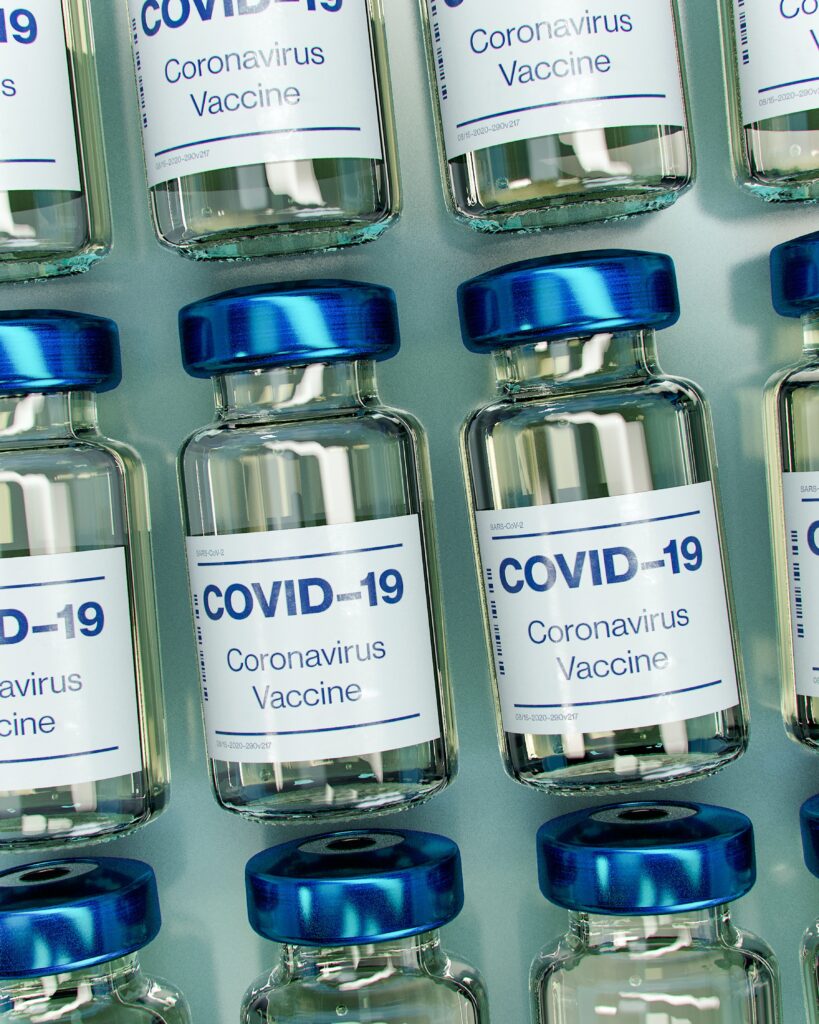“Pricing and distribution of Covid-19 vaccines can intensify global and social inequality,” argues business ethicist based in Austria in a recent publication.
The initial scarcity of effective vaccines against Covid-19 entails an enormous social responsibility to the producing pharmaceutical companies. If the pricing and distribution of this scarce health resource were to be based exclusively on traditional market principles, rich countries and members of the upper class would be protected earlier than poorer ones. This would further manifest global and social inequality. This is the basic thesis of an article now published by Prof. Markus Scholz, Head of the Institute for Business Ethics and Sustainable Strategy (IBES) at FHWien der WKW, who also proposes three concrete measures for ensuring a fair and just allocation of vaccines.
According to a calculation example, 8 billion people face a production capacity of between 1 and 2 billion vaccine doses worldwide. In order to vaccinate each person at least once, it would take 4 – 8 years in the best case – if an approved Covid-19 vaccine becomes available at all. In a recently published article in “Lessons from Corona, Impulses from Business and Corporate Ethics” Prof. Dr. Markus Scholz, describes the consequences of this supply gap for the political and social role of pharmaceutical companies and how market-based mechanisms could increase global inequality.
Hardly any supply. Great demand.
“In principle (!), the shortage of vaccines would give the producing pharmaceutical companies the opportunity to demand exorbitant prices, the fulfillment of which would bring in far more than development costs and a fair profit margin”, explains Prof. Scholz. “A price could be determined by a bidding process in which states, foundations, corporations and even the super-rich make offers.” The consequence would be that industrialized nations would have access to a vaccine first, followed by emerging countries and finally developing countries. If market-based criteria were to subsequently control the allocation of the vaccine in these countries as well, first the rich, then the poor and finally the poorest would be protected from infection. Global and social inequality would become entrenched, because rich nations would be able to revive their economies more quickly, re-establish the population’s freedom rights faster and reopen cultural and educational institutions more quickly. Within a nation, the rich could return to work sooner than the poor and their children could be sent back to school sooner.
“If companies were to allow pricing and allocation solely through market mechanisms, they would share responsibility for the growing inequality in the world,” says Prof. Scholz. At the same time, he points out that companies often retreat into the position that it is not their job to take responsibility for inequality issues, but rather that this is the job of states and supranational organizations, to whose laws and regulations companies would abide.
Prof. Scholz identifies a gap in the interaction among states at a transnational level: “National regulations are of little help in a global crisis. Nevertheless, there are currently only a few efficient institutions that can coordinate the purchase and distribution of a Covid-19 vaccine worldwide. A so-called governance gap exists here”. The existing institutions, e.g. the WHO, Gavi, the Vaccine Alliance, or COVAX are currently facing massive attacks from powerful states (e.g. the USA) or are not supported by certain rich countries (e.g. USA, UK, Japan). “Against this background”, according to Scholz, “it is morally not legitimate for pharmaceutical companies to rely exclusively on laws and regulations and to delegate their responsibility to states and supranational organizations.”
Three therapeutic measures
In order to overcome the inevitable challenges of pricing and allocation, Prof. Scholz proposes three concrete measures in his publication. First, production capacities of competing pharmaceutical companies should be pooled. Only in this way it would be possible to achieve the maximum supply. For this purpose, especially in the European Union, the antitrust law, which regulates coordination and cooperation, must be adapted. Second, non-patenting of the vaccine should be considered, as only this would give other companies the quick and cheap opportunity to produce the vaccine themselves and thus expand its availability. Third: Already now – during the development phase – pharmaceutical companies should actively strengthen global institutions like the WHO (Gavi or COVAX). This is the only way these institutions can possibly contribute their technical expertise and political legitimacy and coordinate pricing and allocation according to balanced criteria and ethical aspects.
Prof. Scholz assumes that political decision-makers, especially in so-called developing countries, and other stakeholders would recognize and reward responsible behaviour by pharmaceutical companies. If, on the other hand, pharmaceutical companies tried to enrich themselves excessively in the context of the Covid-19 pandemic, they should be prepared for a massive loss of reputation and legitimacy, harsh restrictions and, if necessary, withdrawal of their patent rights.
Prof. Scholz’s recently published article is situated in the context of the internationally renowned research at IBES, which is particularly concerned with business ethics, sustainability management and strategy.
Original publication:
Scholz, M: The social responsibility of pharmaceutical companies for the production, pricing and allocation of Covid-19 vaccines. In Alexander Brink, Bettina Hollstein, Christian Neuhäuser, Marc C. Hübscher (eds.): Lessons from Corona, Impulses from Business and Corporate Ethics, 1st edition, 2020, pp. 215-226. https://www.nomos-elibrary.de/10.5771/9783748909460/lehren-aus-corona
Note: Due to the obligatory peer review process of scientific articles and the resulting delay in publication, as well as in light of the rapidly progressing research in the field of Covid-19 vaccines, some of the allocation and production figures mentioned in the original publication are no longer up-to-date. The Science-article “WHO unveils global plan to fairly distribute COVID-19 vaccine, but challenges await” is a useful addition and update: https://www.sciencemag.org/news/2020/09/who-unveils-global-plan-fairly-distribute-covid-19-vaccine-challenges-await
